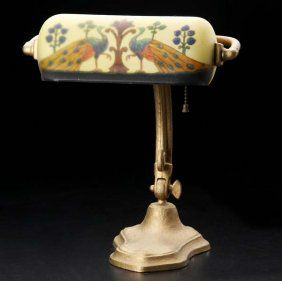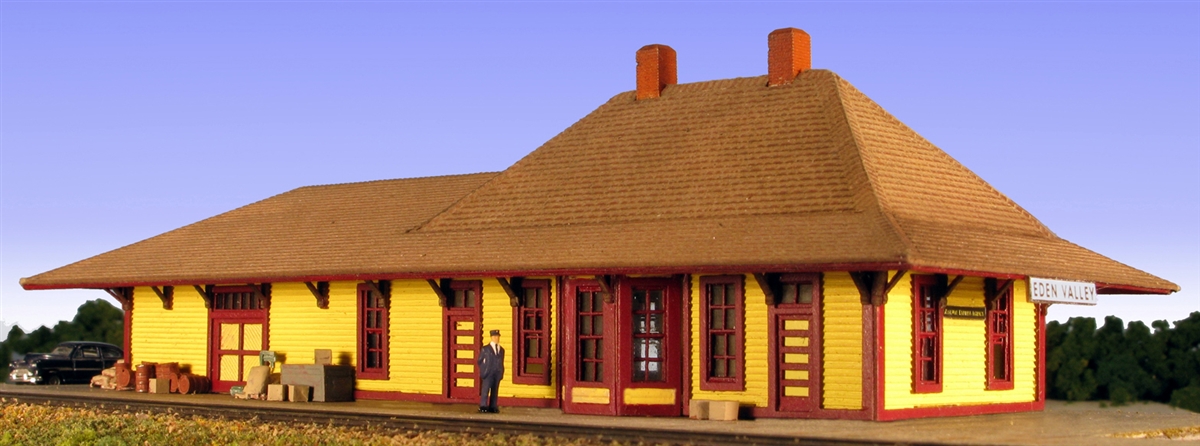Long Description: This Peacock piano lamp has a bread loaf off white shade. The design on this shade consists of two peacocks looking at each other with a floral background design. The lamp has a shoe shaped foot and a curved stem.
Dimensions: 8" Wide
References: Hibel, Hibel & Fontaine 152 A
History: Philip J. Handel had a passion for drawing and decorative arts from a young age. Handel worked as an unpaid apprentice at The Meriden Flint Glass Company for six months, pursuing his interest in art. At the age of nineteen Handel started a business association with Adolph Eydam, focusing in decorative glass and lamps under the company name of Eydam & Handel. Eventually, Eydam took a position as a decorator foreman at a rival company, C. F. Monroe. Handel purchased his deserting partner's share and renamed the business The Handel Company in 1903.
This company focused on decorative glass from lamp shades to china wares. The earliest lamp shades manufactured by the company were 10 or 12" floral shades. Craftsmen later focused on more intricate construction and landscape designs. The company produced Art Deco style lamps with a "Teroca" shade instead of the leaded lamps made popular by Tiffany. Handel painted shades are either obverse painted (exterior) or reverse painted (interior), depending on which side the shade was decorated on. Many lamps also have a "chipped ice" design on the exterior of the shade to add texture to the paintings. Among Handel's craftsmen were skilled metalworkers who produced the bases these decorative shades are supported by.
After Handel passed away, his second wife assumed his job until William Handel, Philip's cousin, was appointed head of the firm. The company thrived during the years following World War I, partially due to William's marketing success. After the onset of The Great Depression the company declined until closing in 1936 and officially dissolving in 1941. While The Handel Company produced various decorative glass, its historical relevance comes from their line of lamp shades.
This company focused on decorative glass from lamp shades to china wares. The earliest lamp shades manufactured by the company were 10 or 12" floral shades. Craftsmen later focused on more intricate construction and landscape designs. The company produced Art Deco style lamps with a "Teroca" shade instead of the leaded lamps made popular by Tiffany. Handel painted shades are either obverse painted (exterior) or reverse painted (interior), depending on which side the shade was decorated on. Many lamps also have a "chipped ice" design on the exterior of the shade to add texture to the paintings. Among Handel's craftsmen were skilled metalworkers who produced the bases these decorative shades are supported by.
After Handel passed away, his second wife assumed his job until William Handel, Philip's cousin, was appointed head of the firm. The company thrived during the years following World War I, partially due to William's marketing success. After the onset of The Great Depression the company declined until closing in 1936 and officially dissolving in 1941. While The Handel Company produced various decorative glass, its historical relevance comes from their line of lamp shades.
Item created by: nmwhite997 on 2016-08-22 12:59:59
If you see errors or missing data in this entry, please feel free to log in and edit it. Anyone with a Gmail account can log in instantly.
If you see errors or missing data in this entry, please feel free to log in and edit it. Anyone with a Gmail account can log in instantly.






